Having a small planter with aromatic herbs near the kitchen is great!
Even if they are plants that do not need maintenance…
Here is 13 mistakes to avoid to successfully grow beautiful aromatic plants. Look :
Mistake n°1: buy your aromatic herbs at the supermarket
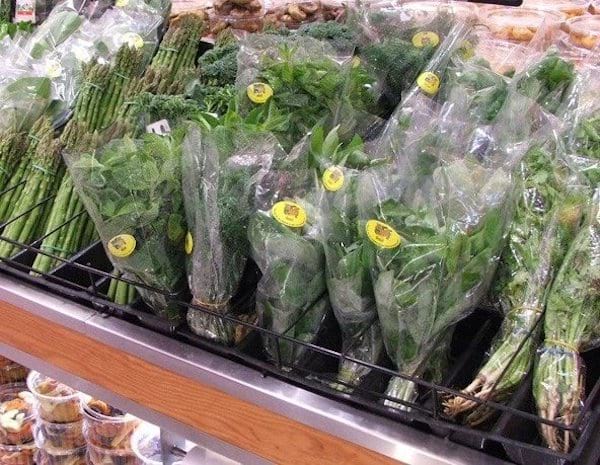
The first mistake to avoid is to buy fresh aromatic herbs at the supermarket!
For what ? Not only because they are sold quite expensive, but also because they are often in poor condition…
Not to mention the fact that you have to buy a whole bouquet when you only need a few strands.
Fortunately, beautiful, mature plants are easily found on markets or in garden centres.
It’s much cheaper and moreover they are often better quality plants.
Mistake n°2: growing your aromatics too far from the kitchen

If the plants are too far from the kitchen, you will never move, in the middle of the recipe, to cut some leaves…
Yes, being lazy is a big factor to take into account when cooking at home!
My cook tip is to plant them on the kitchen windowsill.
That way you always have them on hand! And then, they grow perfectly in pots.
To discover : How to grow herbs in pots at home.
Mistake n°3: sowing your own aromatic herbs

Sowing herbs is possible, but long and delicate…
Trust me, you must already have good knowledge of gardening to get there!
For what ? Because it takes a long time to grow them. For example, parsley takes 3 weeks to germinate…
And what’s more, you have to watch them seriously for weeks! Long and tedious…
As I told you above, it is easy to find already adult plants on the markets or in garden centers.
It’s much simpler that way and you have no chance of missing out!
Mistake #4: Growing Herbs in Unsuitable Soil
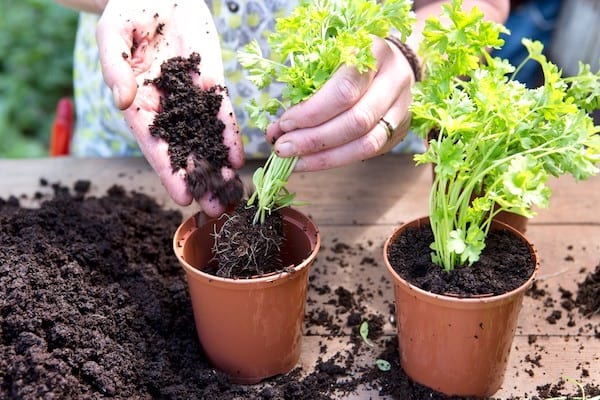
Aromatic plants can be separated into 2 groups.
Basically, there are Mediterranean plants (thyme, rosemary, sage, bay leaf, oregano and marjoram) and all the others.
Their mode of culture is not at all the same!
Mediterranean plants need poor, well-drained soil and lots of sunlight.
For what ? Because they do not like stagnant humidity.
For drainage, they need a handful of gravel (or pebbles) at the bottom of the pot.
It is also necessary to think of spacing the waterings so that they are not too soaked.
If your soil is clayey and heavy, plant the aromatics on a mound and add a little sand so that the water does not stagnate.
Mistake n°5: believing that aromatic herbs all come from warm regions
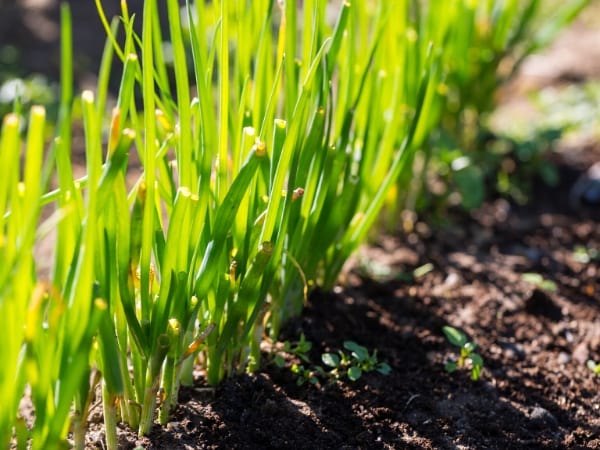
This is the reverse of the previous error!
There are quite a few aromatic plants that are grown in the same way as most vegetables in the vegetable garden.
They need a rich soil, always a little humid and a semi-shaded place.
What are these aromatic herbs? Dill, chives, basil, chervil, cilantro, tarragon, mint and parsley.
They need more frequent watering and a little nitrogen fertilizer once a month like nettle manure.
My advice: in any case, avoid growing the 2 types of plants in the same place, because they do not have the same needs.
Mistake #6: Confusing Annual Herbs with Perennials

Do you know what perennial aromatics are?
These are the small shrubs that grow slowly and need to stay in place for years.
It is therefore essential not to put them in the middle of the vegetable garden!
Instead, plant them on a border to be quiet.
This is the case with chives, tarragon, mint, thyme, rosemary, bay leaf sauce, sage, oregano and marjoram.
All other plants are annuals. What does it mean ?
They die at the end of the season and must be replanted or repurchased each year.
This is the case with basil, dill, chervil, green anise and coriander.
Mistake n°7: overwatering your aromatic herbs
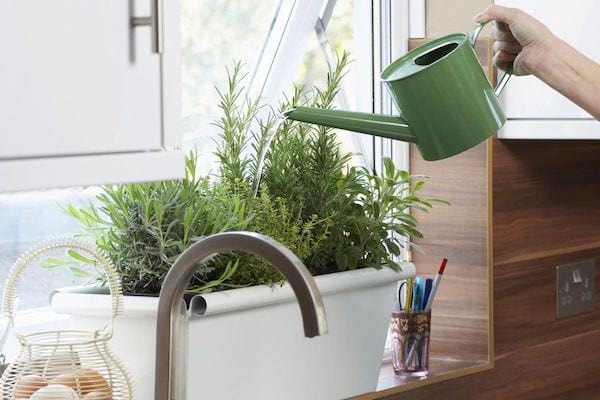
Mediterranean aromatics and others do not have the same water needs.
The first do not need much water, except the first year for the roots.
The others need deep watering at least once a week.
You can even add one or two sprays of water during the week if the weather is very hot.
To find out if the plant needs water, stick your finger in the soil.
If you feel moisture a few cm below the surface, no need to water!
Be careful, too much water kills the plant!
If your planter gets rain regularly, remember to empty it to avoid water stagnation…
Mistake #8: Not Cutting Your Plants Often Enough
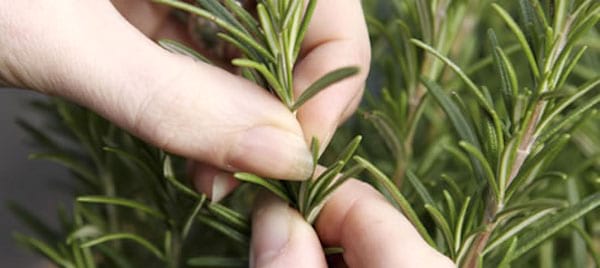
Aromatic plants need to be cut and we often tend to forget this.
We even tend not to dare to cut them when the plants are still very small.
But in fact, it is quite the opposite of what should be done!
Small regular cuts strengthen the plant and allow it to make new branches or new twigs.
Basilisk is the best example to practice when starting out.
When a stem is cut just above 2 leaves, the basil regrows creating two new “V” branches.
So remember to prune your plants several times during the season, even if you don’t need them for cooking.
And freeze your aromatics, you will even have some in winter!
My advice: always cut above the leaves (and not below), and always leave the large branches at the base.
They are the ones with the largest leaves, capturing the best light and nitrogen to nourish the plant well.
Mistake #9: Letting plants flower

When a plant flowers, the edible leaves stop growing!
But it is the leaves that interest us to eat them.
Fortunately, there is a trick to delay flowering and thus continue to harvest the leaves for a few more days.
The trick is to simply cut the buds off the flowers that are growing.
But know that some plants flower from the first months, and often in the season.
But that’s not necessarily a problem. For what ?
Because the flowers of dill and chives, for example, are edible.
It is also excellent on a salad or in a pasta dish.
To discover : 24 Edible Plants Easy to Recognize.
Mistake #10: Falling into routine
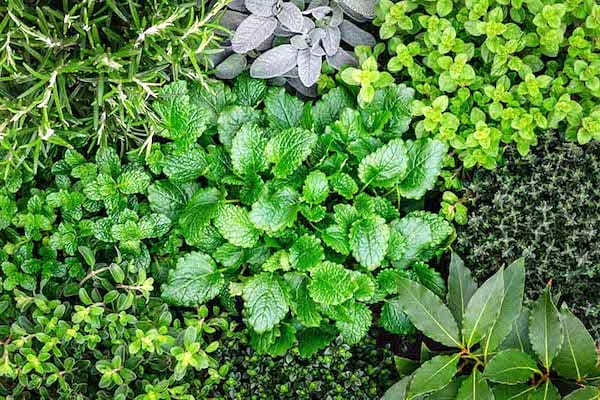
The first year, it’s easier to stick with classic aromatics such as thyme, parsley, mint and basil.
But when you get used to it, why not try new varieties?
It would be a shame to limit yourself given the number of different aromatic herbs that exist!
For example, you can test verbena or lemon balm, which are very robust.
But also angelica, savory, saffron, juniper, marjoram, borage, wild thyme…
Or one of the 40 varieties of thyme or 10 varieties of basil: lemon, purple basil, or licorice basil.
One of 30 varieties of mint such as: peppermint, calixte, bergamot or Chinese.
You will surely find your happiness on the Kokpelli site here.
Mistake #11: Not Touching the Leaves to Pick Them
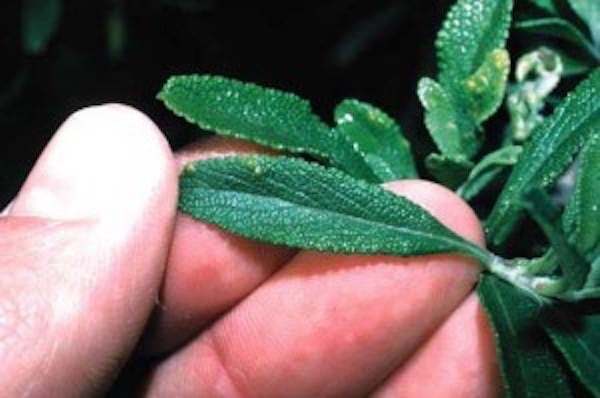
Before choosing a new variety, it is important to touch its leaves. For what ?
Because they will deposit their perfume on your fingers and you will know whether or not you like this new aromatic herb.
You can also bite into a leaf to taste it.
For example, I hate cinnamon basil!
As for mint, I prefer Moroccan mint to peppermint which, as its name suggests…is peppermint!
Everyone has their own tastes, but it is important to test before starting and realizing that you don’t like this plant.
Mistake #12: Not Paying Attention to Invasive Aromatic Plants
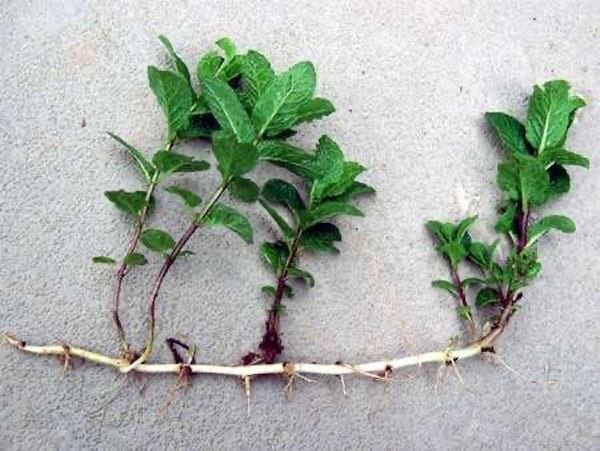
If they feel good, some aromatic plants tend to take up all the space and invade the available space…
Mint is one of the worst of its kind!
If you plant it in the ground, expect it to quickly take up space in the vegetable garden…
To avoid this, plant it in a large terracotta pot that you will then bury in the ground.
Thus, its roots will be limited in space and it will not be able to invade the whole garden!
As for oregano and sage, they must be pruned regularly, otherwise they will spread everywhere.
Mistake n°13: not thinking about saving your aromatics for the winter

In summer, aromatic plants give a lot of leaves.
As a result, we don’t necessarily manage to consume all the herbs…
Damage ! Fortunately, there are effective storage methods to keep them.
Very practical to have even in winter!
To keep them, you have 2 simple and effective methods.
You can dry herbs.
It works great for thyme, rosemary, savory, bay leaf and oregano.
The second method is freezing.
This solution works great for chives, basil, mint or dill.
By the way, you can freeze them easily by following this trick.
Your turn…
Have you tested these tips for growing your aromatic herbs well? Let us know in the comments if it worked for you. We can’t wait to read you!
Share this tip
Do you like this trick ? Click here to save it to Pinterest or click here to share it with your friends on Facebook.
Also to discover:
Herbs: 18 Clever Ways to Grow Them Indoors.
12 Herbs You Can Grow Year-Round JUST IN WATER.

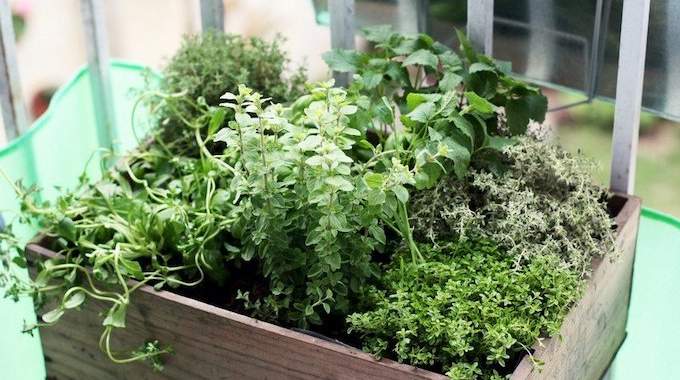


GIPHY App Key not set. Please check settings